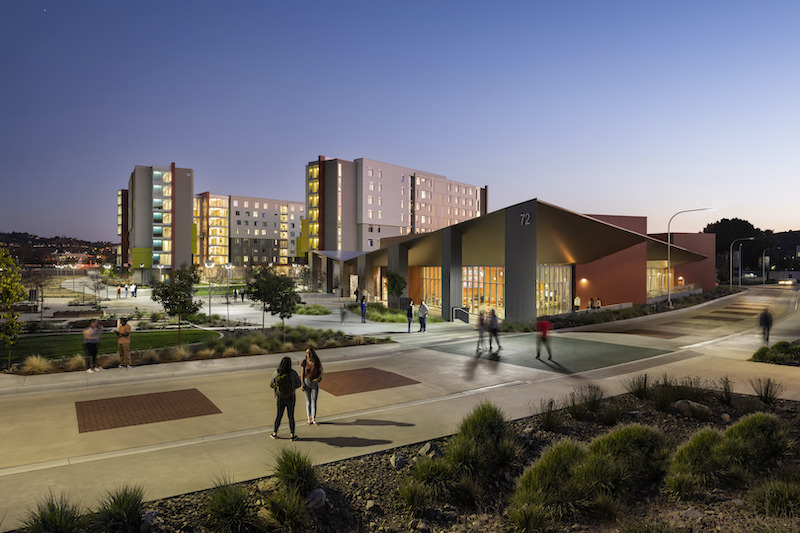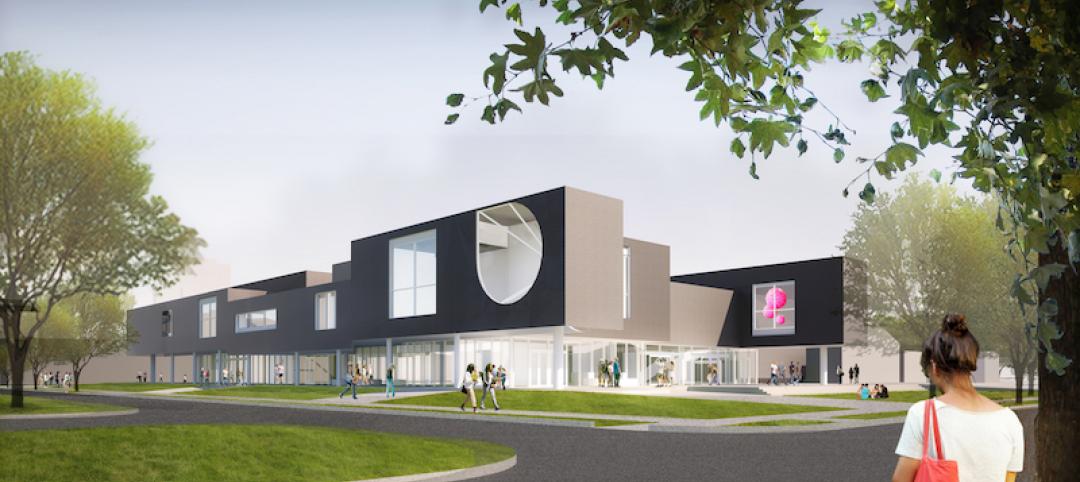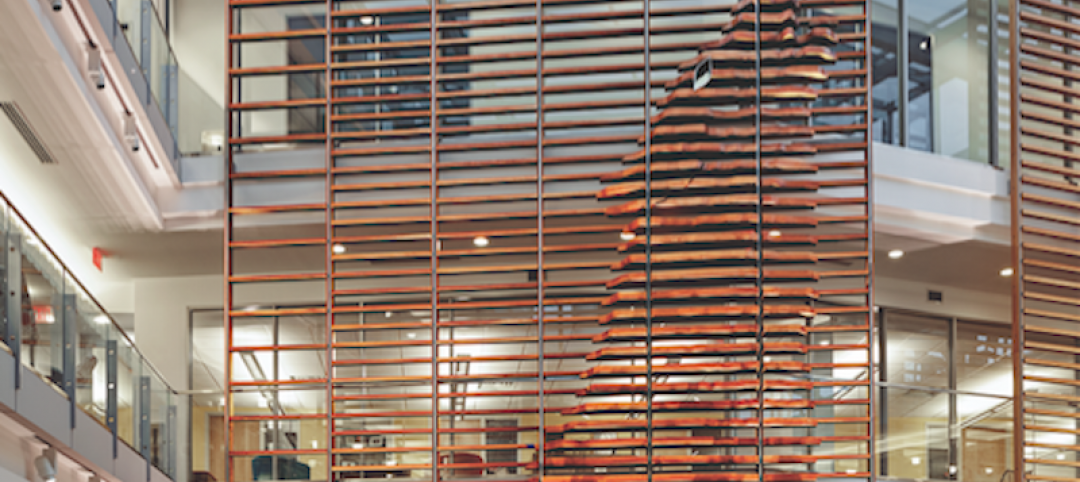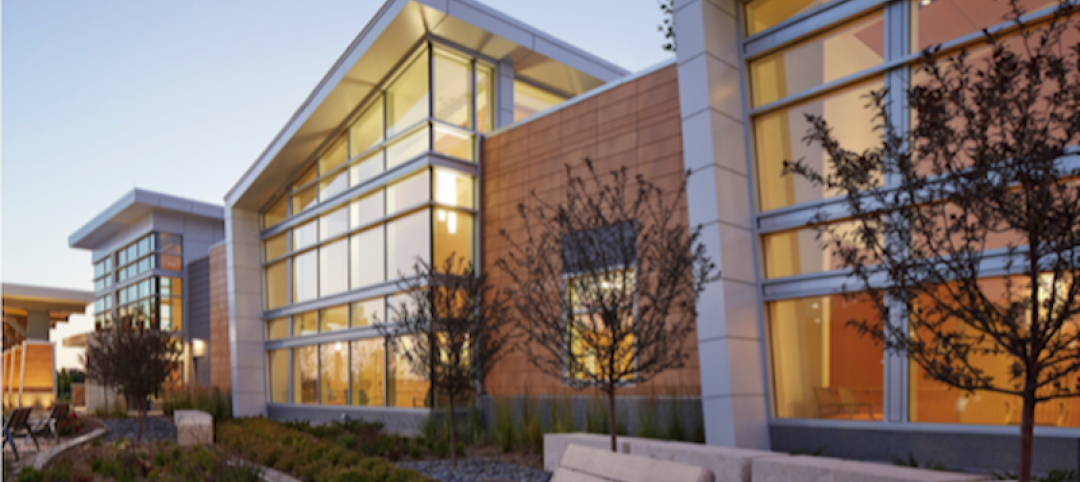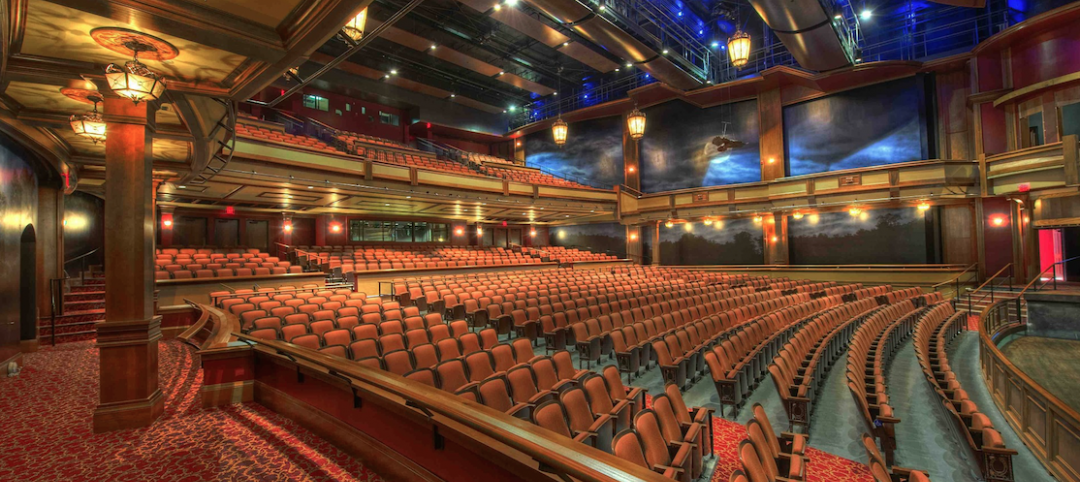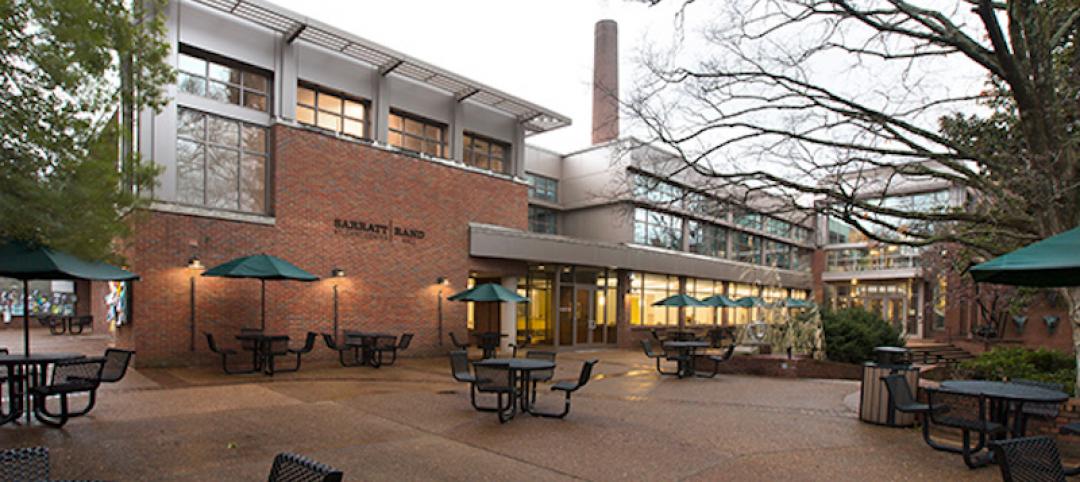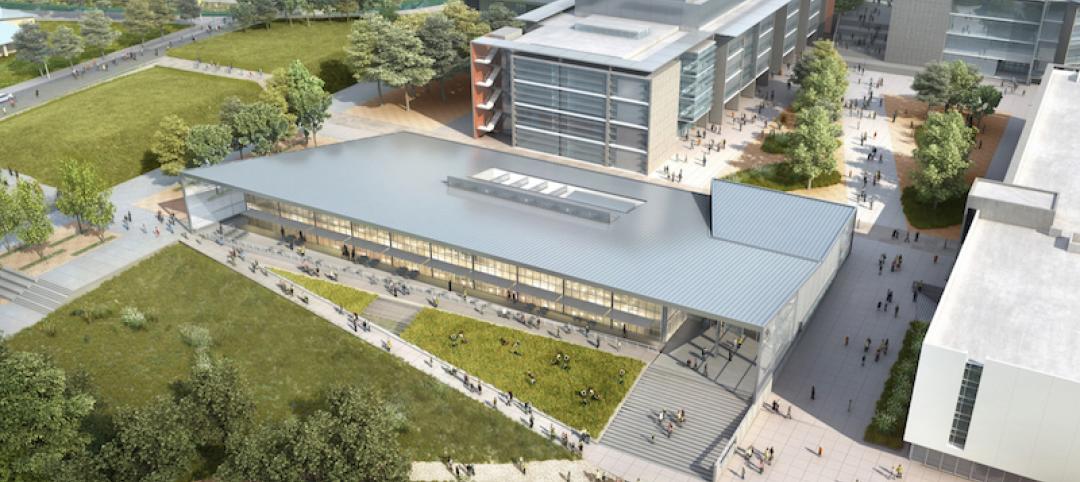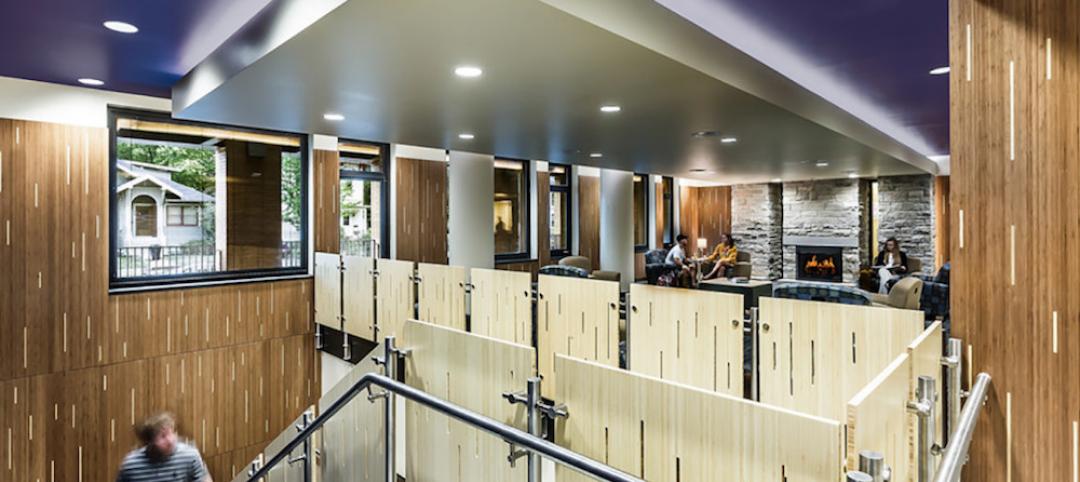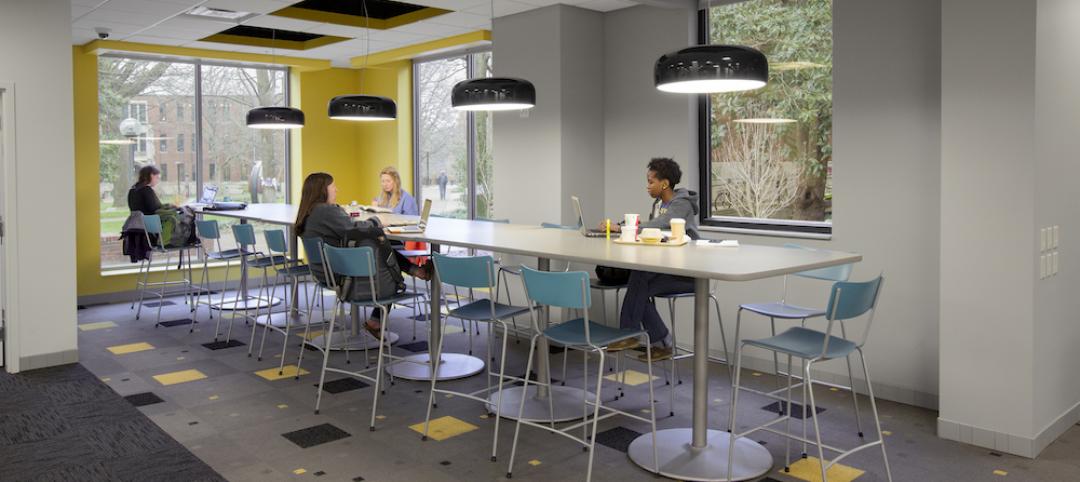In an attempt to eliminate its reputation as a commuter school, California State Polytechnic University, Pomona (Cal Poly Pomona) has recently completed construction of two new eight-story residential towers and a dining commons.
The 340,000-sf project offers first-year student residents smaller communities within larger towers, with each floor providing two 35-student households with places to congregate, socialize, and study. Bedrooms feature natural light and hallways end in views toward the campus and the San Gabriel Mountains. The two buildings interlace shared social spaces, natural light, and open air connections throughout the eight floors.
A diversity of connections between the indoors and the outdoors is a defining feature. Ground-floor amenities are connected to outdoor spaces while balconies on the fifth floor connect students livening on upper floors to the outdoors. Living rooms and lounges use full-height glass to visually connect students outside with what is happening inside.
See Also: Phase one of The Orbit masterplan detailed for Innisfil, Ontario
Meanwhile, the new 650-seat dining commons, located at the campus entrance and gateway to the housing community, features warm materials, residential lighting, and large communal tables. Private eating areas and conference rooms are also included.
The first students moved into the new buildings on January 17, staying for two months before students were all sent home due to COVID-19.
The collaborative design-build team consisted of HMC Architects (executive architect and housing design architect), EYRC Architects (dining commons architect), and Sundt Construction.
Related Stories
University Buildings | Aug 16, 2016
New images of Rice University’s Moody Center for the Arts revealed by Michael Maltzan Architecture
The arts center will foster creativity for making and presenting works across all disciplines
| Aug 10, 2016
UNIVERSITY GIANTS: Facing money woes, the nation's colleges double down on innovative ideas
Budget constraints are compelling some public institutions to pursue alternative methods of financing their major building projects.
| Aug 9, 2016
Top 70 University Engineering Firms
AECOM, WSP | Parsons Brinckerhoff, and Jacobs top Building Design+Construction’s annual ranking of the nation’s largest university sector engineering and E/A firms, as reported in the 2016 Giants 300 Report.
| Aug 9, 2016
Top 100 University Construction Firms
Turner Construction Co., The Whiting-Turner Contracting Co, and Skanska USA top Building Design+Construction’s annual ranking of the nation’s largest university sector construction and construction management firms, as reported in the 2016 Giants 300 Report.
| Aug 9, 2016
Top 100 University Architecture Firms
Gensler, Perkins+Will, and CannonDesign top Building Design+Construction’s annual ranking of the nation’s largest university sector architecture and A/E firms, as reported in the 2016 Giants 300 Report.
University Buildings | Aug 5, 2016
How to design the best dining facilities for Millennial students
Location, visibility, and adaptability are three important ideas to keep in mind when designing campus dining spaces, writes Gresham Smith and Partners’ Patrick Gilbert.
University Buildings | Jul 22, 2016
Fast-growing UC Merced will double in size by 2020
The state’s Board of Regents has approved a $1.34 billion plan that would add nearly 1.2 million sf of new space.
University Buildings | Jul 6, 2016
University housing of the future will blend life and study
Universities across the country are striving to meet the demand of on-campus housing. VOA's Steve Siegle examines what students and universities desire in campus living, and how designers can respond.
University Buildings | Jun 13, 2016
Renovated Drexel University academic building will welcome students with front porch
A large screen sets a living room vibe for the Philadelphia academic building. Plans call for 9,000 sf of common space on the inside and a new quad on the outside.
University Buildings | Jun 13, 2016
Universities infuse tech features into learning, living, and shopping spaces
Virtual learning rooms, gaming stations, and self-check-out kiosks are among the perks—and necessities—that have all become commonplace in college campus design.


